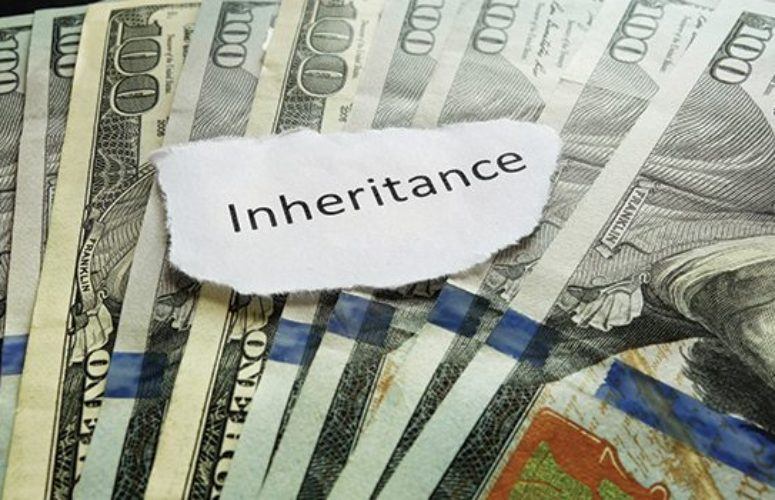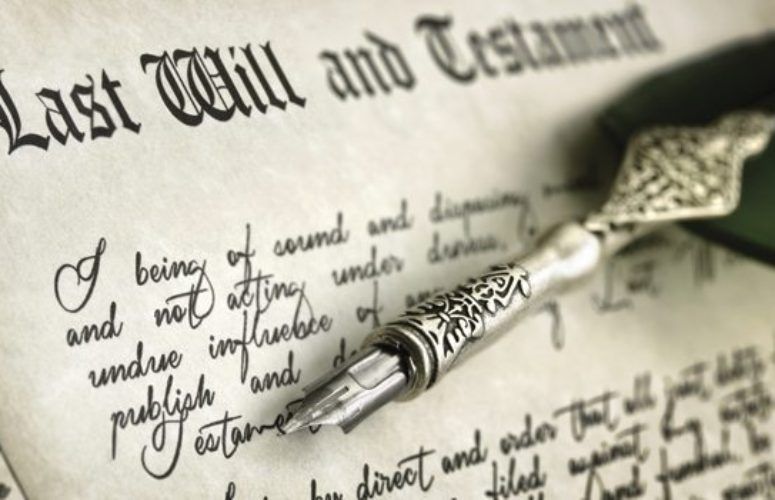
Trials, Tribulations and Taxes
New Jersey residents and their families feel the brunt of estate and inheritance taxes.
By George N. Saliba, Managing Editor On Jul 6, 2015As if New Jersey’s highest-in-the-nation property taxes and substantial income taxes are not enough of a burden, estate and inheritance taxes here add yet another layer to an already onerous pay-the-government environment. Just 19 states have “death taxes” of any variety, and Maryland and New Jersey are the only two states with both estate taxes and inheritance taxes.
However, the Garden State is famously strapped for revenue, with its unfunded pension and health benefits liabilities (among other concerns), and estate and inheritance taxes add to the treasury’s coffers. Yet, too much overall taxation has driven some residents to flee to lower-cost states such as Florida and North Carolina, or – more locally – Pennsylvania. Therefore, will the long-term effects of draconian taxes actually reduce the state’s coffers over time, as would-be taxpayers who are able to leave the state, do so?
Estate Taxes
While the federal level exemption for estate taxes is $5.43 million (e.g., the first $5.43 million of one’s estate is not subject to taxation), New Jersey’s estate tax exemption is a mere $675,000, the lowest threshold in the entire United States. A popular but false notion is that New Jersey’s estate tax only affects affluent persons; however, a middle-class person with a home and modest savings can easily have an estate worth more than $675,000, and thus be subject to the estate tax, upon death. And the estate tax is substantial, as Christopher DeFilippis, tax manager at Bederson, LLP, explains: “For an estate of $840,000, you are looking at a tax of $27,600.”
Inheritance Taxes
The estate tax meshes hand-in-hand with the inheritance tax, the latter which is levied against an estate for all non-lineal descendants (uncles, nieces, nephews, friends, etc.) who inherit money, but not lineal descendants (sons, daughters, grandchildren, etc.) On a positive note, spouses are also exempt from the inheritance tax. Another silver lining to the New Jersey estate/inheritance tax scenario is that the inheritance tax is applied to the estate tax computation, and taxes are then paid on the greater of the two amounts (e.g., there is no double taxation).
Plotting and Scheming (Legally)
Overall, accountants and attorneys advise that one consult with an attorney regarding estate planning, which may include: creating and/or updating a will, forming a trust or trusts, and/or taking other steps. To reduce the size of one’s federal estate, an often overlooked fact is that a person may pay another person’s educational expenses directly to an institution, or pay for another person’s medical expenses, without having those funds included in an estate, upon death.
Gifting is a more complex matter: The federal government permits tax-free gifts of up to $14,000 annually, to any number of individuals. Perhaps surprisingly, New Jersey has no gift tax. Yet, John Loalbo, partner in the trust and estates practice at Riker Danzig Scherer Hyland & Perretti LLP (with New Jersey offices in Morristown and Trenton), explains, “People throw around the notion, ‘There is no New Jersey gift tax; make all the gifts you want,’ and they think there won’t be any ramifications.” But, these gifts are considered at death; the maximum tax payment would be $17,000. Loalbo explains, “If you give away $1 million, the end result is you pay another $17,000 when you die … I don’t think that’s a bad deal, because that is a very low rate. My point is that those gifts are not ‘tax free,’ because you will get hit with them, if your gross estate is $675,000 or more, when you pass away. I want to make sure that [people] know there is a bit of a ramification at the end of the day, when you do make a gift for estate tax purposes, in New Jersey.”
On a similar note, gifts given “in contemplation of death” (think: an elderly person who is diagnosed with terminal cancer), will result in the gifts being brought back into the estate, and subject to New Jersey inheritance taxes.
Trusts
For married couples who plan carefully to reduce estate taxes, a trust may be established for the benefit of the surviving spouse. In this scenario, upon the first spouse’s death, the $675,000 exemption would take effect, and, upon the second spouse’s death, another $675,000 exemption would be permitted. This technique can greatly reduce New Jersey estate taxes, if properly executed.
Loalbo says, “If you just do what I call an ‘I love you’ situation, where you leave everything to the spouse, then the one credit is going to be lost. But, [with a trust], you preserve both credits by forming either a disclaimer trust, or a credit shelter trust. In New Jersey, if you have a house, you are going to be pretty close to the $675,000 limit. Even if you have an $800,000 estate, you want to make sure you preserve both of your credits, otherwise you are going to be paying tax on a few hundred thousand dollars, if you do not.” Of course, the details surrounding establishing trusts are complex; again, a competent attorney can assist in these situations.
Loalbo reveals that another concept to discuss with an attorney is: “If you own life insurance, and you transfer it to a trust, and you survive three years from the date of the transfer, it is out of your estate for both federal and New Jersey estate tax purposes. For inheritance tax purposes, it is out of your estate because you have named a trust as the beneficiary, and you are no longer the owner, anyway. If you have the trust buy the policy, then it is immediately out of your estate, for federal and New Jersey estate tax purposes. Also, the same thing [is true] for inheritance tax purposes, because the owner and the beneficiary are not the estate, or the individual.”
Areas of Confusion
Perhaps surprisingly, accountants and attorneys indicate that some persons are unaware that New Jersey even has an estate tax. Overall, law is an extremely intricate subject, and many misperceptions abound.
For example, Maria T. Rollins, partner at Paramus-based accounting firm Kreinces Rollins & Shanker (KRS), explains, “For joint [bank] accounts, people somehow believe that 50 percent of [the monies] are excluded from the estate. That’s not necessarily the case. It is really: Where are those funds coming from? If it is my account, I funded it, I am using it, and I just put your name on it, I am not going to be able to shield any of that from my estate. That’s just an area of confusion, and I am seeing more and more of that. I see people added to accounts merely to help in the process of paying bills for the sick or the elderly, and they don’t quite understand that it’s still the decedent’s account … For people subject to the federal tax, they are in excess of $5 million. They have attorneys and accountants advising them about how to shield or protect their assets, and how to have tax minimization policies. But, [I am talking about] the people who fall between that $675,000 and $1 million area, where their estate is their residence, and it now has to be liquidated to pay taxes. We are seeing those situations.”
Domicile Issues
Another sphere of misunderstanding involves persons attempting to avoid New Jersey estate and inheritance taxes by living out of state for much of the year. These can be extremely labyrinth-like scenarios, and people must exercise caution. Statutory residence and domicile residency tests are different. In New Jersey, for an estate and inheritance tax, there is not a focus on being out of state for 183 days; the latter applies to statutory residency rules for income tax purposes. For estate taxes, New Jersey examines domicile: Where do you vote? Where do you pray? Where do you play golf?
Richard Bloom, tax partner at WeiserMazars, LLP (with New Jersey offices in Edison), adds, “Domicile is always a big issue. To break domicile, you really have to break domicile; just having a Florida residence won’t do it. The touchy situations could include someone who owns a business in New Jersey, but claims they spend a significant portion of their time in Florida. They do all the other ancillary items, such as changing their driver’s license, changing voter registration, down there. But, you really have to break ties to establish domicile outside of New Jersey. Other situations that I see are when people maintain a house in New Jersey – and the rest of the family is still in New Jersey.”
Philip Drudy, member of the firm and partner-in-charge of the tax department at Smolin Lupin (with New Jersey offices in Fairfield and Red Bank), says, “If you are up in New Jersey and it is transient – meaning you are there only for a short period of time, because of health, family, etc. – but, you never relinquished your domicile in Florida, then New Jersey may challenge it and say you are a domicile of New Jersey. But, that probably is not going to be one that they win, because you never relinquished your domicile in Florida, and established your domicile in New Jersey.”
He adds, “If you sold your house in Florida and didn’t really have a place down there, then you have to be domiciled somewhere, and if you happen to be up in New Jersey, even if it is just for medical treatment, New Jersey is going to try to claim you as a resident of the state, for estate tax purposes. Especially as you get older and you have health issues, it can become an issue as to whether you are in the state just for medical reasons, and you are going to return to where you are from. Or, have you relinquished that, because you need to be up here to be around family?
“I had a situation in which somebody was down in Florida for a long time. The person contracted Alzheimer’s, and the children wanted the parent up here, and they sold the house in Florida, etc., and the person lived up here, and he – in essence – became a domicile of New Jersey. He had been in Florida for probably 20 years.”
Conclusion
New Jersey estate and inheritance taxes are difficult to reduce, and, as mentioned, it can be challenging to establish domicile outside of New Jersey, if one doesn’t completely exit the state.
Brad E. Muniz, member of the firm and director of accounting and auditing at Livingston-based Sobel & Co., LLC, says, “You talk to the clients, and the older clients have personal feelings [about whether or not to leave the state]. The younger clients think about leaving because they may have been in a position where they were a beneficiary – in some way – to somebody passing, and they saw the effects of the inheritance tax and the estate tax. While they weren’t sitting there with their hands out, waiting for money, they did know that a relative passed away with ‘X’ amount of dollars, and by the time the government went through, they didn’t get ‘Y’ – they got ‘Z.’ They start saying, ‘What is the benefit of being here, if New Jersey is doing this?’
“I can see the Baby Boomers and the Gen-Xers say, ‘If I start setting my life up a different way, I can get out of [New Jersey], and not be impacted by this down the road, and not pay the other taxes I am being hit with, now.”
That said, for New Jersey residents who are surrounded by their loved ones who also live in the state, skilled accountants – in close collaboration with attorneys – can help shape plans that will best shield their assets from the IRS and from Trenton, all within the spirit and letter of the law.
Related Articles:






